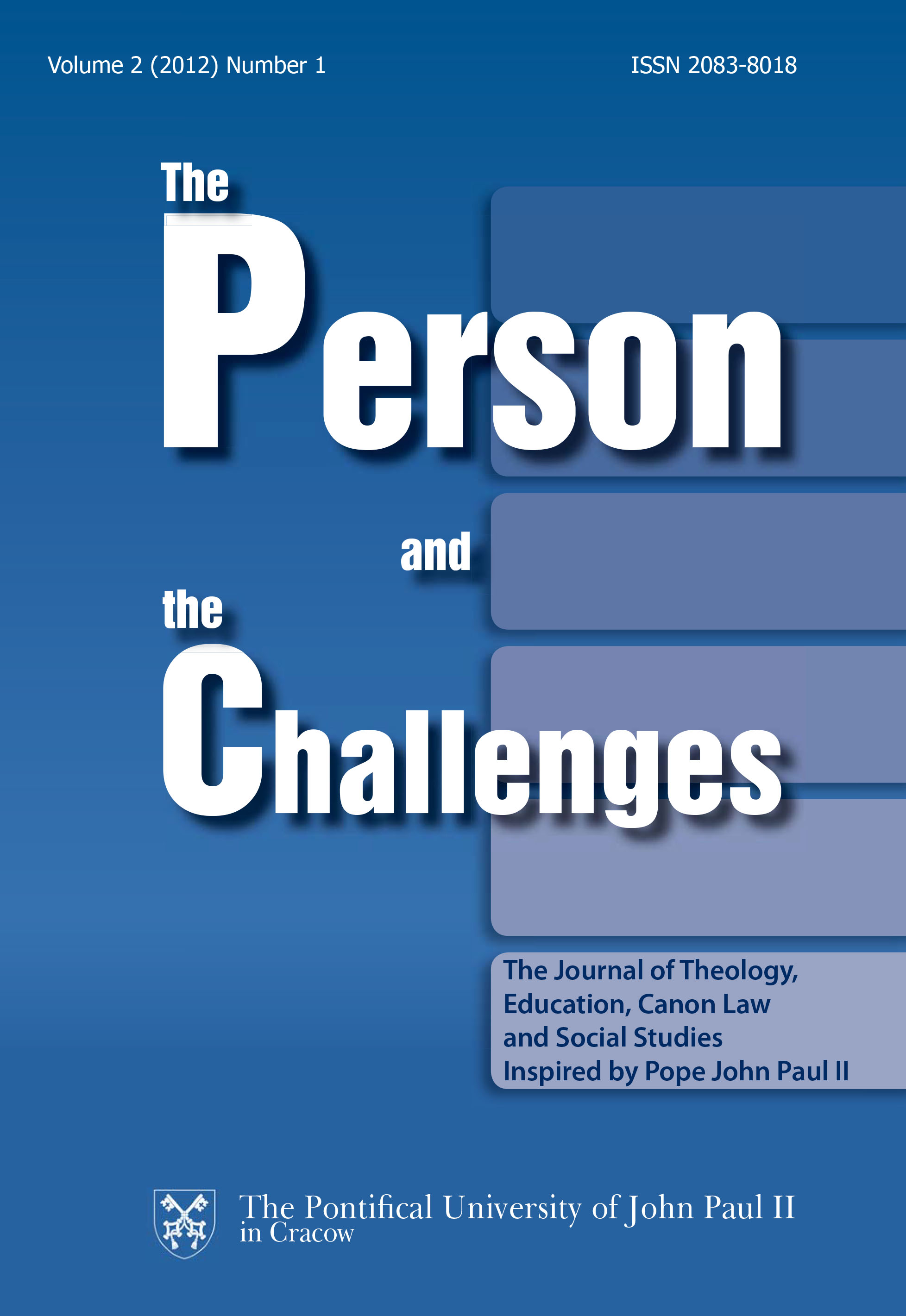El recto entendimiento del consentimiento matrimonial según Juan Pablo II
DOI:
https://doi.org/10.15633/pch.883Słowa kluczowe:
John Paul II, marriage, personalism, matrimonial consentAbstrakt
Pope John Paul II in his teaching on marriage had not limited the issue only to the principle that matrimonial consent makes marriage, but he put a real challenge in front of the canonists stating that the proper understanding of the consent may not be reduced to a certain historical patterns, but must be developed on the basis of anthropological and legal sciences. The article discusses four issues. Firstly, the author engages in the issue of impoverishment of ius in corpus as an essential element of the contract of marriage. Then, she sketches the view of the Second Vatican Council on matrimonial consent as a mutual gift of one person to another. Subsequently, the author deals with the influence of personalism on the legal dimension of marriage. Finally, she presents the personalistic criteria in the Magisterium of John Paul II and its immediate legal dimension.
Bibliografia
Burke C., L’oggetto del consenso matrimonial. Un’analisi personalistica, Torino 1997.
Gil Hellín, Constitutionis pastoralis “Gaudium et spes” sinopsis historica. De dignitate matrimonii et familiae fovenda, pars II,, caput I, Pamplona1982.
Hervada J., El Derecho del Pueblo de Dios. Hacia un sistema de Derecho canónico, III. Derecho matrimonial, Pamplona 1970.
Marzoa A., Miras J., Rodríguez Ocaña R. (dir.), Comentario exegético al Código de Derecho canónico, III, Pamplona 1995, pp. 1019-1637.
Sarmiento A., Escrivá Ivars J., Enchiridion familiae: textos del magisterio ponti fi cio y conciliar sobre el matrimonio y la familia (Siglos I a XX), Madrid 1992.
Pobrania
Opublikowane
Numer
Dział
Licencja
Prawa autorskie (c) 2015 Eloy Tejero

Utwór dostępny jest na licencji Creative Commons Uznanie autorstwa 4.0 Międzynarodowe.
Autorzy publikujący w czasopiśmie udzielają jego wydawcy zgody o następującej treści:
- Autor zachowuje autorskie prawa majątkowe do utworu, a jednocześnie udziela wydawcy czasopisma zgody na jego pierwszą publikację w wersji drukowanej i wersji online na licencji Creative Commons Uznanie autorstwa 4.0 Międzynarodowe oraz zgody na wykonywanie opracowań, w tym przekładów.
- Autor ma możliwość udzielania zgody niewyłącznej na opublikowanie utworu w wersji, która ukazała się w czasopiśmie (np. zamieszczenia go w repozytorium instytucjonalnym lub opublikowania w książce), wraz z informacją o jego pierwszej publikacji w czasopiśmie.
- Autor może umieścić swój utwór online (np. w repozytorium instytucjonalnym lub na swojej stronie internetowej) jeszcze przed zgłoszeniem utworu do czasopisma.

